Peter Smith: 9 Store Manager Archetypes
Smith details the types of store managers he’s encountered, with the goal of helping retailers find a person who’s a fit for their store.

Despite not being in the “recruiting game,” it’s not a stretch for them to imagine I might have a few contacts given my decades in the business.
If I were to cast my memory back far enough, I’ve likely been responsible, directly or indirectly, for a great many new marriages in the jewelry space. And, by default, a few divorces too, since most recommended managers likely were gainfully employed by other jewelers at the time they changed companies.
The question of whether I can help find a manager, nonetheless, intrigues me every time.
On the surface, it seems straightforward—“They’ve got a jewelry store that needs a manager!”
Alas, it’s never quite that simple.
A prospective store manager can look very different to two different businesses, and that’s not always for the reasons we might think.
Of course, a million-dollar store will look very different than a $30 million store.
The volume of the latter, with its higher-profile and branded environment, may require more formality from its personnel, and, perhaps, more relevant experience in branded spaces.
A higher-volume store with more people might also require a history of managing larger teams, not to mention the added complexity of handling multiple personalities (sometimes in the same person … don’t get me started!).
When it comes to managing people, smaller-volume stores can have their own unique challenges.
While managing three employees versus managing 12 or more is an entirely different undertaking, the smaller environment can often require more of a jack-of-all-trades manager with a comfort level in tighter quarters and potentially more personal relationships.
Smaller-volume stores also rarely enjoy the luxury of employing a non-selling manager, given the all-hands-on-deck nature of those businesses. Larger-volume stores can often deploy more specialized personnel to cover the various parts of the business.
The definitions of what a store manager might look like for a business have more variations than there are days in the week, and while there’s always danger in being reductive with descriptions, I have noticed a few consistent archetypes during my career.
These classifications are not mutually exclusive. Some stores may have, or need, a manager with a combination of these definitions.
Some, as you will see, are profiles you should work hard not to hire, but knowing they exist (and working to avoid them) may save you a lot of grief down the road.
Once you’ve identified what is most important to your business, build a profile and a thorough prospecting, interviewing, and onboarding process to help identify and hire that profile.
Note: This list is gender agnostic. I’m using “he” and “guy” as placeholders for consistency.
Safe Hands Guy
This is the guy who looks the part. He will align nicely with your cultural norms (never underestimate the power of culture fit) and will keep things ticking over without really effecting change.
He is easier to manage than others, but he can frustrate you because innovation, creativity, and risk-taking are not traits that come easily to him.
He can work well in a business that is resistant to change and, yes, there are lots of those businesses, even if many of them don’t know it.
The Difference Maker
This guy wakes up ready to execute new and exciting, albeit sometimes scary, initiatives.
He is an “ideas” dude, excited to learn and resistant to inertia and status quo.
If your business has been stuck in the mud for years and needs a good shake-up, he’s your Huckleberry.
He may not cross every “t” or dot every “i,” but he’ll make things happen.
Sales Guy Masking as a Manager
He is a salesperson with a set of keys and the responsibility for hiring, firing, and making schedules.
He became a manager because of the ego drive that made him successful in sales, and the manager role is the end game, with a title and extra money. The job of actually managing is less interesting to him.
Operations Guy Masking as a Sales Guy
This guy wants to spend as much time in his office and behind the scenes as he can.
He loves busy work, paperwork, and problem-solving.
He is neither a great salesperson (what, me? Sales?) nor a good manager (this business would be great if it wasn’t for all these employees!).
He is reliable and decent, but he would prefer not to get his hands dirty on “sales-y” stuff and he is not inspiring anyone to drive business or better themselves.
Everybody’s Friend
This guy just loves everybody. He’s got the Duchenne smile down pat, shakes hands and kisses babies for sport, and knows all the lingo.
He won’t hire anyone with an ounce of baggage, visible tattoos, or a modicum of drive. And he won’t fire anyone for anything.
Most importantly, he should never be trusted to select the Spotify playlist unless you want to listen to showtunes all day.
The Taskmaster
This guy was raised eating glass and spends his day thinking about ways to piss people off.
He craves power and is capable of full-on dictator mode, believing that everyone’s out to cheat him.
His mantra is to inflict mental calluses on everyone to toughen them up. He is the answer to degenerate salespeople everywhere and, in his world, all salespeople are degenerates.
Don’t Rock the Boat Guy
This guy goes through his day trying not to be noticed. He specializes in pained expressions, especially when anyone asks him to step outside his comfort zone.
His idea of innovation is changing his lunch routine occasionally. He’ll never get into trouble and his closest allies are inertia and stasis.
Everything Before Me Was Stupid Guy
This guy is determined to save the world, one decision at a time.
He wonders how the team got dressed in the morning prior to his arrival, and he is a master practitioner of both eye rolling and deep exhales.
He courageously bears the weight of his savior complex and wishes people in his orbit would recognize the considerable burden he carries daily in service to humanity. I mean, the store.
I Know Everything About Jewelry and Nothing About People Guy
He has his industry credentials on the wall and on his business cards. He can “refractive index” you to death even if you just came in to pick up a repair and he might even speak complicated timepieces even though you don’t sell watches.
Product nuance to him is like a seance to a psychic. But people? Well, they’re a complication too far.
You might add others, but these ones exist, and they impact their respective stores in profound ways, some for the good and others, unfortunately, for the not-so-good.
Before you decide to hire a store manager, give serious consideration to what your business needs most at this moment and in the near future.
Once you’ve made that decision, hire for that.
Happy retailing.
The Latest

Guthrie, the mother of “Today” show host Savannah Guthrie, was abducted just as the Tucson gem shows were starting.

Butterfield Jewelers in Albuquerque, New Mexico, is preparing to close as members of the Butterfield family head into retirement.

Paul Morelli’s “Rosebud” necklace, our Piece of the Week, uses 18-karat rose, green, and white gold to turn the symbol of love into jewelry.

Launched in 2023, the program will help the passing of knowledge between generations and alleviate the shortage of bench jewelers.

The nonprofit has welcomed four new grantees for 2026.


Parent company Saks Global is also closing nearly all Saks Off 5th locations, a Neiman Marcus store, and 14 personal styling suites.
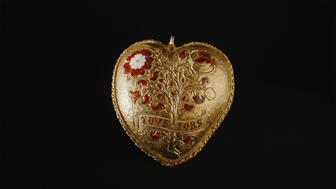
It is believed the 24-karat heart-shaped enameled pendant was made for an event marking the betrothal of Princess Mary in 1518.

Criminals are using cell jammers to disable alarms, but new technology like JamAlert™ can stop them.
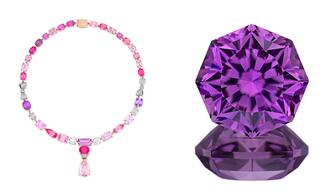
The AGTA Spectrum and Cutting Edge “Buyer’s Choice” award winners were announced at the Spectrum Awards Gala last week.

The “Kering Generation Award x Jewelry” returns for its second year with “Second Chance, First Choice” as its theme.

Sourced by For Future Reference Vintage, the yellow gold ring has a round center stone surrounded by step-cut sapphires.

The clothing and accessories chain announced last month it would be closing all of its stores.

The “Zales x Sweethearts” collection features three mystery heart charms engraved with classic sayings seen on the Valentine’s Day candies.

The event will include panel discussions, hands-on demonstrations of new digital manufacturing tools, and a jewelry design contest.

Registration is now open for The Jewelry Symposium, set to take place in Detroit from May 16-19.

Namibia has formally signed the Luanda Accord, while two key industry organizations pledged to join the Natural Diamond Council.

Lady Gaga, Cardi B, and Karol G also went with diamond jewelry for Bad Bunny’s Super Bowl halftime show honoring Puerto Rico.
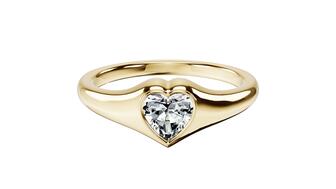
Jewelry is expected to be the No. 1 gift this year in terms of dollars spent.

As star brand Gucci continues to struggle, the luxury titan plans to announce a new roadmap to return to growth.

The new category asks entrants for “exceptional” interpretations of the supplier’s 2026 color of the year, which is “Signature Red.”

The White House issued an official statement on the deal, which will eliminate tariffs on loose natural diamonds and gemstones from India.

Entries for the jewelry design competition will be accepted through March 20.

The Ohio jeweler’s new layout features a curated collection of brand boutiques to promote storytelling and host in-store events.
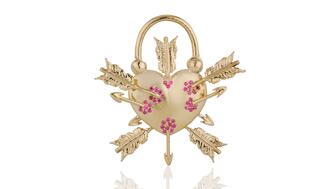
From heart motifs to pink pearls, Valentine’s Day is filled with jewelry imbued with love.

Prosecutors say the man attended arts and craft fairs claiming he was a third-generation jeweler who was a member of the Pueblo tribe.

New CEO Berta de Pablos-Barbier shared her priorities for the Danish jewelry company this year as part of its fourth-quarter results.
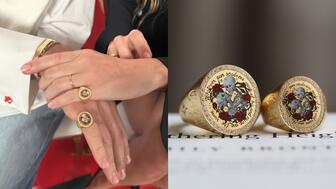
Our Piece of the Week picks are these bespoke rings the “Wuthering Heights” stars have been spotted wearing during the film’s press tour.






























